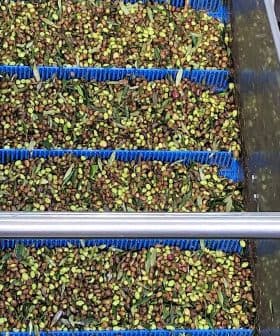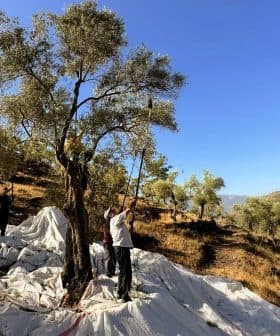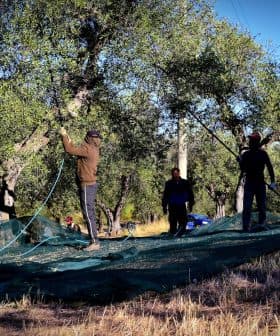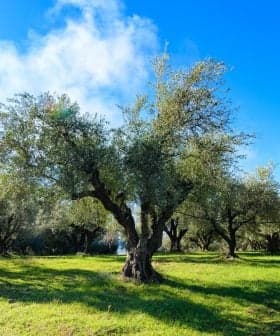Chalkidiki Olive Farmers Face Tragic Fruit Set After Another Mild Winter
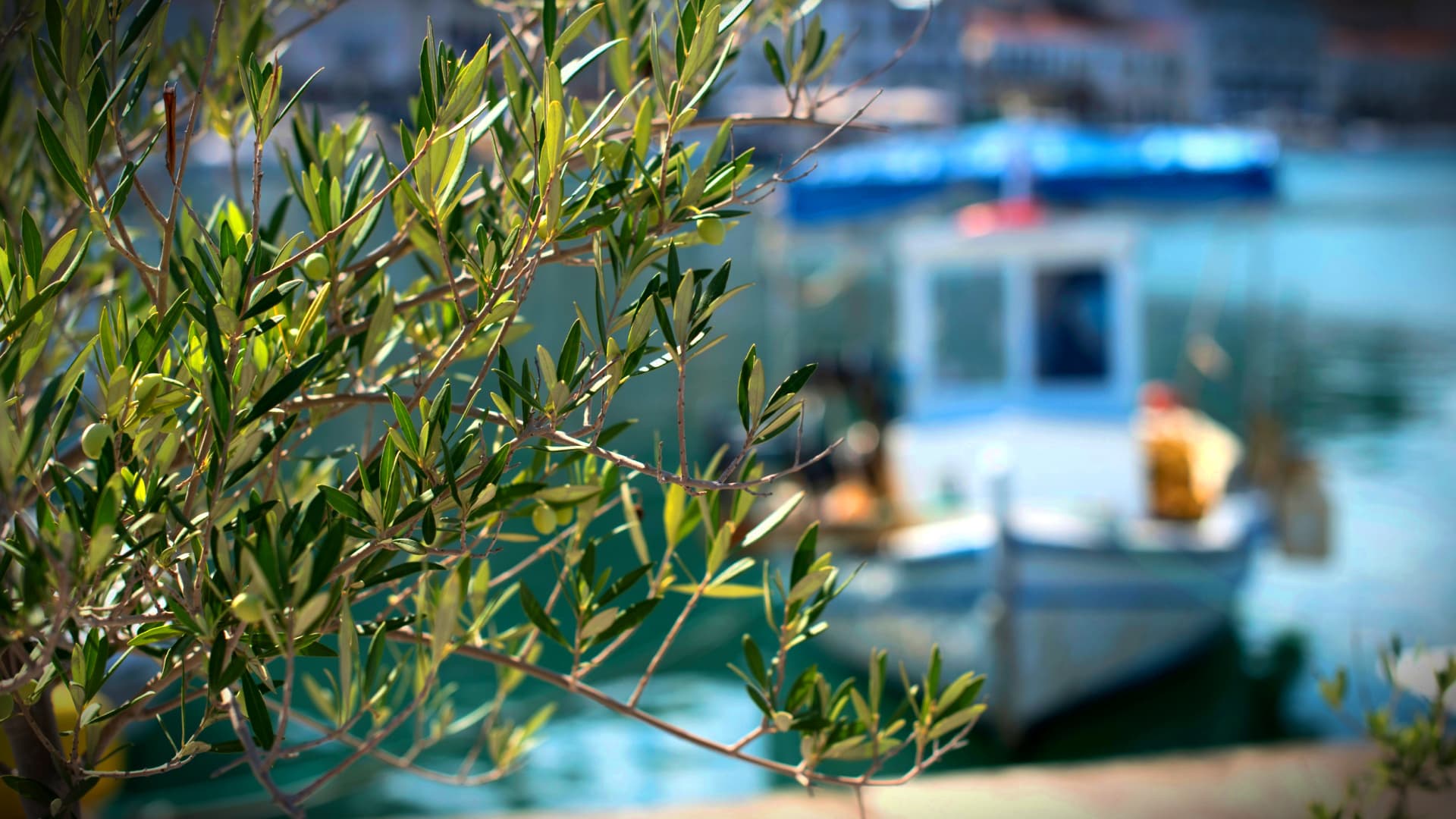
Table olive producers in Chalkidiki are facing a significant decrease in fruit set, with expectations of a 90 percent drop in yield for the upcoming crop year, attributed to climate change and mild winters. The region’s olive growers are preparing for a disappointing harvest, with low yields impacting the industry’s income and sustainability in the long run.
Table olive producers from the northern Greek peninsula of Chalkidiki are facing extremely low levels of fruit set, with trees alarmingly empty ahead of the start of the harvest in September.
“The olive trees on the Chalkidiki peninsula are suffering from a complete lack of fruition,” said Athanasios Molasiotis, professor of agriculture at the Aristotle University of Thessaloniki. “The situation is tragic, and there is no exaggeration in this.”
According to some early estimates, a steep drop of almost 90 percent is expected in the region’s yield of Chalkidiki table olives for the 2023/24 crop year compared to the previous one.
See Also:2023 Harvest Updates“It is climate change and the mild winters that play games with the olive trees in the region,” said Elpidoforos Karathanasopoulos, head of the agricultural association Agios Mamantos. “[The trees] do not ‘get tired’ and subsequently do not have the strength to bear fruits when expected.”
Karathanasopoulos added that the association’s members, a total of 200 growers who cultivate around 600 hectares of Chalkidiki olive trees in the south of the peninsula, are faced with total disaster the next season.
More olive growers in the region are facing an ‘off-year,’ a low-production year in the olive trees’ natural alternate bearing cycle, despite efforts to maintain an adequate level of production.
On and off years
In the context of olive oil production, the term “off year” refers to a year in which olive trees produce a lower yield of olives. Olive trees have a natural cycle of alternating high and low production years, known as “on years” and “off years,” respectively. During an “on year,” the olive trees bear a greater quantity of fruit, resulting in increased olive oil production. This is influenced by various factors, including weather conditions, such as rainfall and temperature, as well as the tree’s age and overall health. Conversely, an “off year,” also known as a “light year” or “low production year,” is characterized by a reduced yield of olives. This can occur due to factors like stress from the previous “on year,” unfavorable weather conditions, or natural fluctuations in the tree’s productivity. Olive oil producers often monitor these cycles to anticipate and plan for variations in production.
“We have always taken good care of our trees by pruning, fertilizing and watering them,” Anestis Karagiannakis, an olive grower from the small town of Nea Triglia in the west of the peninsula, told Olive Oil Times.
“However, from 2013, when the weather started to become warmer and warmer, we have been unable to receive high yields for two to three consecutive years as was the case before,” he added. “The culprit is no other than the climate change.”
Karagiannakis also said that the past winter was unnaturally warm, and the olive trees did not have the chill hours to break bud dormancy and bear fruit in time.
“The approaching harvest will be a huge disappointment in our area,” he said. “We expect to get only 5 to 10 percent of our usual volume of production, so we will be in the fields harvesting for about a week only.”
In total, 20,000 producers cultivate around six million Chalkidiki table olive trees on 33,000 hectares of the peninsula. In a good year, production amounts to more than 120,000 tons of olives. Around 90 percent of the annual yield is destined for export to foreign markets.
It is the second time in the last three years that low fruition levels impact table olive producers in Chalkidiki.
In 2021/22, production was again severely reduced due to the inability of the olive trees to bear fruits. In the current 2022/23 crop year, however, the region’s producers of Chalkidiki table olives enjoyed a bountiful harvest of around 160,000 tons.
“The loss in producers’ income — calculated to be over €200 million — is taking a toll on the region’s growth,” said Yiannis Koufides, head of the Chalkidiki Chamber of Commerce, referring to the anticipated decline in olive production.
“A scientific study will be prepared to document that the Chalkidiki table olive sector has been impacted more heavily by climate change compared to others in the country,” Koufides added. “We are already in search of ‘clones’ of the variety, which may turn out that they need less cold weather and could replace the [Chalkidiki] olive trees in order not to lose the ‘green gold’ of our prefecture.”
Recent research from Aristotle University and the Chalkidiki Chamber of Commerce has indicated that olive cultivation in Chalkidiki will likely become unsustainable in the long run due to the increasingly warming microclimate of the peninsula.






